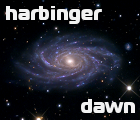|
Sound effects for SpaceEngine
|
|
| HarbingerDawn | Date: Monday, 14.01.2013, 13:49 | Message # 16 |
 Cosmic Curator
Group: Administrators
 United States
United States
Messages: 8717
Status: Offline
| Quote (midtskogen) Even if there was enough gas in space for sound to travel through, it would still take a 100 billion years or so for sound to travel one light year. Or 200,000 years from the sun to earth.
Actually, assuming that sound travelled through the space between Earth and the Sun as fast as it travels on Earth (which it probably would be at least that fast since sound speed is correlated to temperature), then it would take about 13.5 years for sound to travel from the Sun to Earth, and therefore something less than a million years to travel one light-year.
None of which is of practical importance of course since, as we've established, sound can not travel through space.
All forum users, please read this!
My SE mods and addons
Phenom II X6 1090T 3.2 GHz, 16 GB DDR3 RAM, GTX 970 3584 MB VRAM
|
| |
| |
| midtskogen | Date: Monday, 14.01.2013, 14:05 | Message # 17 |
 Star Engineer
Group: Users
 Norway
Norway
Messages: 1674
Status: Offline
| Quote (HarbingerDawn) Actually, assuming that sound travelled through the space between Earth and the Sun as fast as it travels on Earth (which it probably would be at least that fast since sound speed is correlated to temperature), then it would take about 13.5 years for sound to travel from the Sun to Earth, and therefore something less than a million years to travel one light-year.
You're right. I don't know what went wrong in my calculations. It's just such a big number that it could be nearly anything and I wouldn't see that it must be wrong.
Another question would of course be how warm it then would be in space. Between stars, cold (and a lower speed of sound). But this is pointless. Without the vacuum, we'd plunged into the sun a long time ago...
NIL DIFFICILE VOLENTI

|
| |
| |
| HarbingerDawn | Date: Monday, 14.01.2013, 14:15 | Message # 18 |
 Cosmic Curator
Group: Administrators
 United States
United States
Messages: 8717
Status: Offline
| Quote (midtskogen) I don't know what went wrong in my calculations
The first calculations I did were wrong too, and by an even bigger margin that yours, I had accidentally inserted a few too many zeroes into the Earth-Sun distance 
As for how warm it would be, it would probably be quite warm in the vicinity of Earth, and even hotter as you approached the Sun. Moving outward it would get colder, and approach 3 kelvin as you neared interstellar space. So sound would travel very "fast" (still really slow) very near stars, but in most of space it would move very slowly. So the Earth-Sun sound time would probably be 10 years or less, but the light-year time would almost certainly be much greater than one million years.
For my calculations above I just used 350 m/s for sonic speed, and 149 597 870 000 meters for Earth-Sun distance. Neither is quite correct, but good enough for the purpose of this 
Quote (midtskogen) Without the vacuum, we'd plunged into the sun a long time ago...
Very true
All forum users, please read this!
My SE mods and addons
Phenom II X6 1090T 3.2 GHz, 16 GB DDR3 RAM, GTX 970 3584 MB VRAM
Edited by HarbingerDawn - Monday, 14.01.2013, 14:16 |
| |
| |
| Methis | Date: Monday, 14.01.2013, 16:21 | Message # 19 |
 Space Tourist
Group: Users
 Netherlands
Netherlands
Messages: 35
Status: Offline
| (not to mention that, with the energy of any sound dissipating at 1 atmosphere of pressure with, I believe, P = P0 / 4*pi*r^2 ((where P0 is the initial energy in Watts and r the distance travelled in metres)) so the amount of energy needed to have any sound audible at any significant distance would be quite astronomical..)
Space is not a perfect vacuum, though. Not to say there's enough particles around to produce any kind of significant sound waves, of course. It has been suggested that a true vacuum could be extremely hazardous up to a point where it might destroy the universe, though I regrettably forgot the precise reasoning behind this. Something to do with vacuum-energy which would increase rather than decrease as the pressures would strive to equilibrium, growing the vacuum pocket exponentially... Or was it to do with some kind of cavitation effect..? At any rate, true vacuums are probably bad! 
|
| |
| |
| SpaceEngineer | Date: Tuesday, 15.01.2013, 11:59 | Message # 20 |
 Author of Space Engine
Group: Administrators
 Russian Federation
Russian Federation
Messages: 4800
Status: Offline
| Sound in a very thin medium and is a much complex feature. When you dilute the medium, so any atom may cross kilometers between collision with another atom, there will be no sound, only shock waves. I.e. there is some threshold (depending on temperature and density) where sound speed gets bigger than shockwave speed, so any sound source (like supernova explosion) will produce single shockwave, but not oscillating waves as normal sound should be.
The shockwave is defined in physics as surface where thermodynamic characteristics like temperature and pressure gets undefined (or infinite, if you use standard formulae), which means that you cannot use thermodynamics there, and should describe atom-to-atom interactions directly (using kinetic theory or even quantum theory). This is simple to understand - if atoms moves faster than sonic speed (on the edge of explosion for example), you cannot calculate their temperature nor pressure, because the system gets out of thermodynamic equilibrium.

|
| |
| |
| Prometheus_SD7 | Date: Thursday, 31.01.2013, 03:05 | Message # 21 |
|
Observer
Group: Newbies
 United States
United States
Messages: 2
Status: Offline
| First, hello everyone. I signed up just to make this post... Since this thread is about sound I'll just post it here instead of make a new thread about it.
Quote (SpaceEngineer) there will be no sound in space
Probably a stupid idea but here we go... My suggestion was sound in space. Instead of normal sounds you'd expect to hear in a gas filled environment, do what we do in real life. Record electromagnetism and convert it into sound waves.
Not the greatest quality but this is what I'm talking about:
http://www.youtube.com/watch?v=5ZYFaEZV-aQ
I'm sure a sound designer can mimic these recordings and make them sound not so rough, or creepy. Preferably make it procedural, based on features of individual planets. Procedural ambient sounds is the entire basis of some games apparently, so I don't see why it wouldn't work here. Also, I think it would be neat traveling all over listening to how different objects sound, especially if there's a "directional microphone" to check out how individual objects sound. Maybe include the ability to switch from directional to 360 degrees. Changing reception range could be on option as well... All sorts of things you could do with this. It would create a whole new level of immersion that I think SE is missing.
Also, when asteroid belts are 3D, how about about making sounds for asteroids bouncing off the hull?
|
| |
| |
| Spyro | Date: Sunday, 03.02.2013, 02:04 | Message # 22 |
 Explorer
Group: Users
 United States
United States
Messages: 162
Status: Offline
| Quote Probably a stupid idea but here we go... My suggestion was sound in space. Instead of normal sounds you'd expect to hear in a gas filled environment, do what we do in real life. Record electromagnetism and convert it into sound waves. Not the greatest quality but this is what I'm talking about: http://www.youtube.com/watch?v=5ZYFaEZV-aQ I'm sure a sound designer can mimic these recordings and make them sound not so rough, or creepy. Preferably make it procedural, based on features of individual planets. Procedural ambient sounds is the entire basis of some games apparently, so I don't see why it wouldn't work here. Also, I think it would be neat traveling all over listening to how different objects sound, especially if there's a "directional microphone" to check out how individual objects sound. Maybe include the ability to switch from directional to 360 degrees. Changing reception range could be on option as well... All sorts of things you could do with this. It would create a whole new level of immersion that I think SE is missing. Also, when asteroid belts are 3D, how about about making sounds for asteroids bouncing off the hull?
I don't know, the argument (or debate) above is saying that there is not enough atoms in space to carry noise, so no sound in space would be more simulator (like SE), but it would be more immersive and intresting if there was noise in space... I CAN'T DECIDE! 
I'm back, but am I here to stay? Hopefully!
|
| |
| |
| HarbingerDawn | Date: Monday, 04.02.2013, 01:19 | Message # 23 |
 Cosmic Curator
Group: Administrators
 United States
United States
Messages: 8717
Status: Offline
| I support the idea of procedural sound mixes based on electromagnetic and charged particle radiation from the objects in local space; I think this would add a lot. The only thing about "no sound in space" is just that: there is no sound in space. But you can have sound without actually having "sound". I had started working on gathering appropriate sound samples for different environments, but didn't get very far with doing anything with them.
All forum users, please read this!
My SE mods and addons
Phenom II X6 1090T 3.2 GHz, 16 GB DDR3 RAM, GTX 970 3584 MB VRAM
|
| |
| |
| Prometheus_SD7 | Date: Tuesday, 05.02.2013, 18:28 | Message # 24 |
|
Observer
Group: Newbies
 United States
United States
Messages: 2
Status: Offline
| Yeah, it wouldn't represent actual sound, it would be sound generated from the electromegnetism and radiation from objects in space (both big and small, near and far). Basically it's feedback from your environment without being unrealistic. In fact it's very realistic considering we actually do it in real life (the video in my first post).
I think this could be added on to somewhat as well for later features. I mentioned an idea for being able to focus in on what you're hearing (switch from omnidirectional to pinpoint reception), distance could be an option as well. Focus in on a distant star and if it has advanced intelligent life, the energy coming from it could have a unique sound that identifies intelligence.
|
| |
| |
| AlessiaCristallooo | Date: Saturday, 09.03.2013, 21:33 | Message # 25 |
 Astronaut
Group: Users
 Italy
Italy
Messages: 44
Status: Offline
| Space Engineer, did you put menu sounds into the game? 
|
| |
| |
| Salvo | Date: Sunday, 10.03.2013, 10:46 | Message # 26 |
 Star Engineer
Group: Local Moderators
 Italy
Italy
Messages: 1400
Status: Offline
| Quote (AlessiaCristallooo) Space Engineer, did you put menu sounds into the game? biggrin
I don't think so 
The universe is not required to be in perfect harmony with human ambition.
CPU: Intel Core i7 4770 GPU: ASUS Radeon R9 270 RAM: 8 GBs
(still don't know why everyone is doing this...)
|
| |
| |
| JRM | Date: Thursday, 29.08.2013, 04:46 | Message # 27 |
 Observer
Group: Users
 Canada
Canada
Messages: 13
Status: Offline
| Some ambient/atmospheric/slowly changing background sounds could complement visual richness of SE Universe and help player to immerse deeply to the game/sim...
Edited by JRM - Sunday, 15.09.2013, 04:11 |
| |
| |
| SpaceEngineer | Date: Thursday, 29.08.2013, 09:23 | Message # 28 |
 Author of Space Engine
Group: Administrators
 Russian Federation
Russian Federation
Messages: 4800
Status: Offline
| Cockpit sounds might be a noise from ventilation fans and vents, and bass sound generated by rotation of the hab module.
Engine sounds is a rattling sound of a started rocket, and clanging sound and vibration on flying.

|
| |
| |
| JRM | Date: Friday, 30.08.2013, 05:53 | Message # 29 |
 Observer
Group: Users
 Canada
Canada
Messages: 13
Status: Offline
| Quote (SpaceEngineer) Cockpit sounds might be a noise from ventilation fans and vents
Good luck with fans and vents ...
|
| |
| |
| HarbingerDawn | Date: Friday, 30.08.2013, 06:37 | Message # 30 |
 Cosmic Curator
Group: Administrators
 United States
United States
Messages: 8717
Status: Offline
| Quote (JRM) Good luck with fans and vents ...
Why? That's not very hard to do.
All forum users, please read this!
My SE mods and addons
Phenom II X6 1090T 3.2 GHz, 16 GB DDR3 RAM, GTX 970 3584 MB VRAM
|
| |
| |